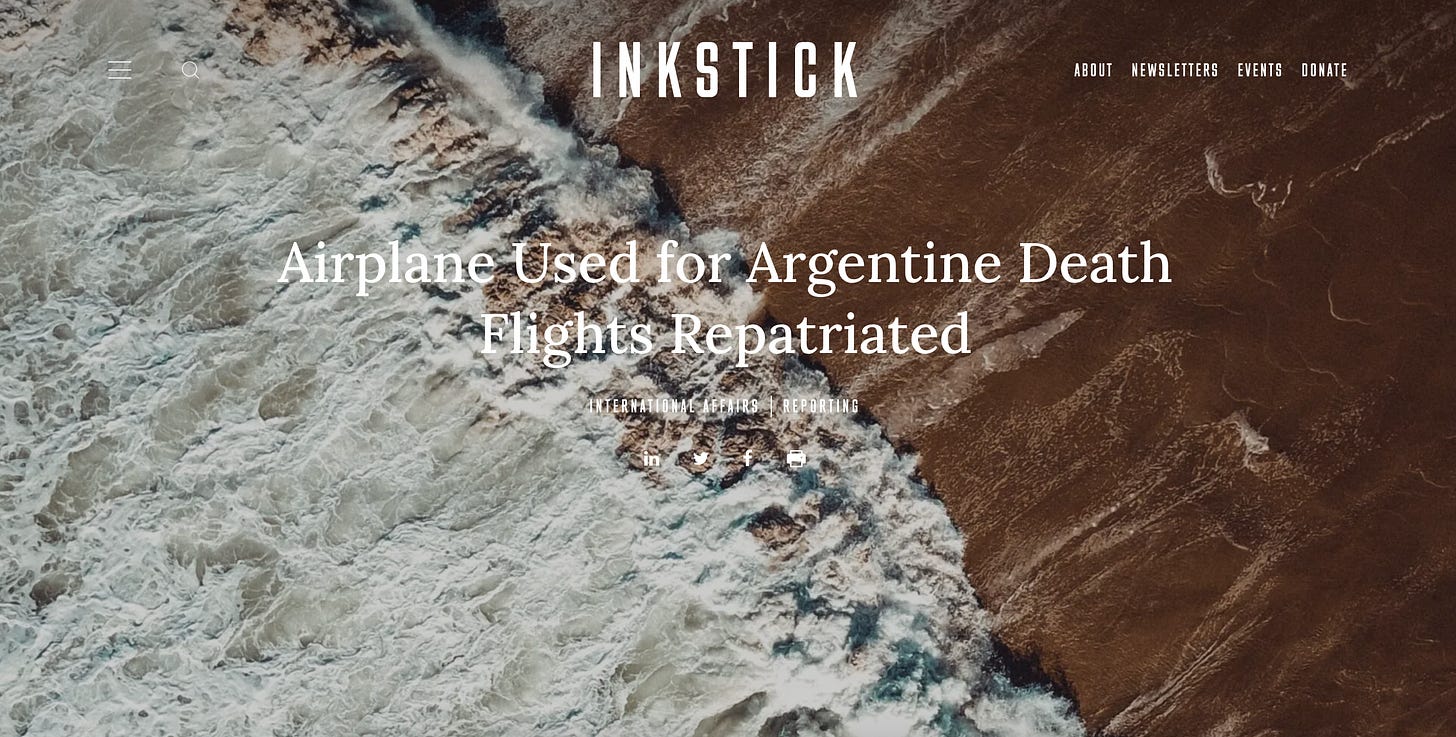The Rest of Us is a series about, well, the rest of us. It’s where we celebrate the community of writers and creators who make up Inkstick, especially the sides of us that wouldn’t normally make it into our stories.
This week, we highlight Ramona Wadi, who writes often for Inkstick on Chile, Palestine, anti-colonial resistance movements, and the ghosts of Dictatorships. She wrote this week on Latin America’s relationship with Israel, giving historical context to the diplomatic shifts between the actors around the current conflict.
Don’t wait for Giving Tuesday: If you value Inkstick’s work, consider a donation today. Even $5 or $10 a month makes a huge difference.
Who are you?
I am Ramona – a freelance journalist, book reviewer and watercolor artist. I have a passion for red, poppies, lava, and walking in the rain without an umbrella.
What keeps you up at night?
I don’t sleep much, so night has become a time to think, to imagine, to just absorb the darkness. A time for tangent thoughts, for looking at the night sky, listening to Italian music which I have a fondness for. Sometimes, a particular song or the repertoire of one singer encompasses my mind, which means hours of listening on repeat. At other times, I just appreciate the stillness of night, the quiet. In darkness and quiet, everything becomes more enhanced. If I light up a palo santo stick for meditation purposes, for example, the flame becomes a vibrant artwork, until it dies down.
What side activities do you do that seemingly have nothing to do with your work (yet perhaps have everything to do with it)? What are the links between these aspects of yourself and how do these other sides of you contribute to/frame your global security work?
A lot of my writing deals with memory, mostly related to dictatorship history and anti-colonial resistance. One of my hobbies is collecting pebbles which catch my attention, or from places I visit on my travels. In a way, pebbles remind me of the importance of remembering, and how much we lose when memory is marginalized. One of my favorite collections of pebbles is from Shkodër, Albania. I was walking in the rain to Rozafa Castle, when a mound of earth on the pavement got my attention. Upon further inspection, I saw many beautiful pebbles but for some reason, the green ones caught my eye and I gathered several. I later realized that the pedestrian part of Shkoder is paved with stones of the same color I collected – all different shades of green. If pebbles are imbued with connection, if only we paid enough attention to observe, how much more in terms of preserving memory could we gain by talking to people and listening?
What do you wish we were talking more about?
More oral history. The human aspect needs to be perpetually emphasized. For example, Chile’s disappeared during the Pinochet dictatorship makes for a sobering read, but the narration of the women of Calama, who took matters into their hands and searched for their loved ones themselves, paints a picture of what dictatorship violence truly means.
The same is necessary for Palestinians, who have faced colonial violence since before the establishment of Israel. Many narratives of the 1948 Nakba and before remain silenced, and the same might be likely for the atrocities unfolding now in Gaza, where statistics, although necessary, are concealing the Palestinian narratives. Gaza is representative of Palestine due to its refugee population since the Nakba. If Israel’s plan to ethnically cleanse Gaza is implemented, the loss will be tremendous for Palestine when one considers that refugees are the strength of anti-colonial resistance.
Some of Ramona’s favorite pieces for Inkstick:









